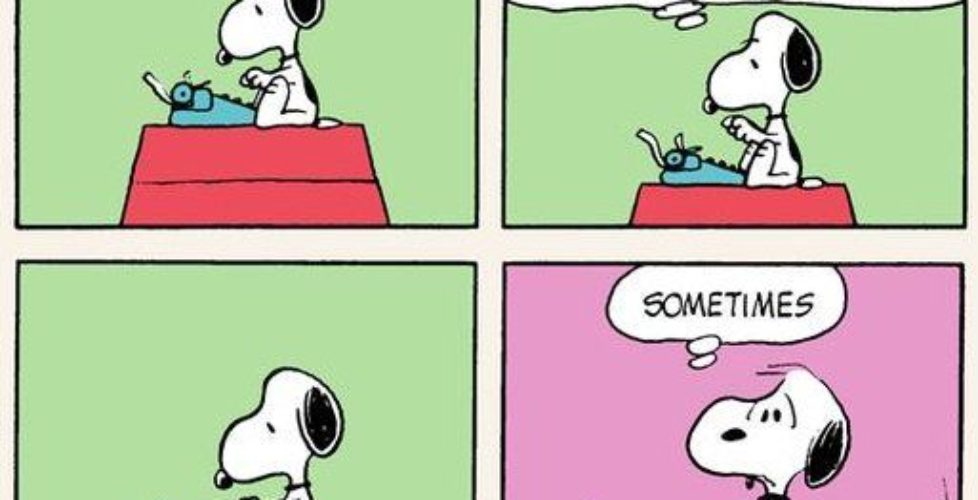Kathryn Tse-Durham: My Two Cents
“Miss Kathryn, have you finished your third book?”
I often get this question from students and readers who have finished the first two instalments of The Ellanor Chronicles, my fantasy book series. After having hosted a number of creative writing workshops with the English Schools Foundation (ESF) and my private ‘Atomic Da Vincis’ classes, teaching about creative writing feels like a calling that I could do for the rest of my life. And yes, I have indeed been working on my third book, and the manuscript is currently with my wonderful editor. The truth is that writing a book requires a tremendous amount of hard work, and some people, bless them, may think it is as easy as jotting down notes on a piece of shorn paper.
I’ve been racking my brain about what piece of essential advice about creative writing I can impart. My two cents. Something that may seem painfully obvious, but just isn’t really emphasized and deserves mentioning. I mean, these days it’s so easy to find information about creative writing tips online. So what wisdom could I possibly impart to you, dear reader? Most who have taken a creative writing course might remember (or not) the ‘Elements of Fiction’ – Plot, Character, Setting, Point of View, Style, Theme. Use ‘Show Not Tell’, and make sure to use a good range of vocabulary words. Make sure you proofread and use the correct grammar. You know, the usual fare. But at the back of my mind, I knew there was something that just hasn’t been emphasized. An important point that is often glossed over. And out of sheer providence, a few days ago I came across a short video clip featuring Dr Jordan B. Peterson, an acclaimed Canadian clinical psychologist, social commentator, scholar, and author…and possibly one of the most intelligent people I have come across. In his usual conversational but profoundly eloquent way, he was speaking on the topic of writing, and his words so resonated with me that I sat bolt upright and shouted, “That’s it!”
This is what Dr Jordan B. Peterson said in his distinct voice that conveyed his incredulity: ‘“What blows me away at universities is that nobody ever tells students why they should write something. People think it’s because you need the grades. But, no. No. You learn to write because you need to learn to think. Thinking makes you act effectively in the world. Thinking makes you win the battles you undertake. And those could be battles for good things. And if you can think and speak and write, you are absolutely deadly. Nothing can get in your way. So that’s why you learn to write. And I can’t believe people aren’t just told that. It’s the most powerful weapon you can possibly provide someone with.”’
Dr Jordan B. Peterson absolutely nailed it. Learning to write is important because it hones your mind, a blade that needs sharpening. Writing and thinking sharpens those edges and makes you intellectually lethal. When I took a distant creative writing course through Oxford University back in 2009, I’m sure I grew new brain cells from all those writing tasks that made me think, analyze, critique, rewrite, polish. Those few months were one of the happiest times of my life. I not only grew as a writer; I also grew as a person. I learned to see the world through a wider, sharper, more colourful lens. This is that I want to emphasize – good writing requires you to be a good thinker and a good observer of the human condition. You need to be curious about the world and ask questions and figure out right from wrong, truth from false, the sensible from the senseless. If you want to write a good essay, thesis, poem, screenplay, short story or novel, and you want it to stand out and engross readers and make them go, “Wow, I want to keep reading this!” – then you need to think well. If you want people to listen, you have to communicate well. Writing is essentially a form of communication, isn’t it? Good writing requires layer upon layer of planning, critiquing, analyzing, organizing, revising, rewriting, editing. And here’s what I’ve found – writing can be so much hard work, but it can be loads of fun, too.
I’m not exaggerating when I say that good creative writing can change the world. Why do we tell stories? Sure, we want to entertain. But ultimately, it’s because we have something to say. We want to communicate something important. I strongly believe that telling stories is one of the most powerful ways to say something to the world. And so, you have to use those Elements of Fiction: Plot, Character, Setting, Point of View, Style, Theme – and use them to their full potential.
Let me refer to a particular short story as an example. Many of you may have heard of or read the wonderful children’s books of master storyteller, Roald Dahl. ‘Matilda’, ‘The BFG’, ‘Charlie and the Chocolate Factory’ are timeless tales. To this day, Matilda makes me laugh and tear up. I didn’t know that Roald Dahl had written a collection of short stories for adults until I was at university, and boy, did they blow my mind. I didn’t think I could be more impressed by Dahl, but I was in for a surprise. One particular short story has stayed with me: The Landlady. It is a dark and terrifying look at 17-year-old Billy Weaver’s first and last stay at a bed and breakfast. If you haven’t already read it, then you should. It would be thirty minutes well spent.
As a writer, you have to create characters that are multi-dimensional and real, flawed but likeable enough that the reader still roots for them. In ‘The Landlady’, the protagonist is young Billy Weaver who comes across a seemingly harmless landlady. On the surface, she epitomizes the ‘grandma-next-door’ and offers him a room at a big discount at her little bed & breakfast. With the subtlety that comes with a great storyteller, Dahl’s writing style (which involves plenty of dark humor, sarcasm, and suggestive dialogue) masterfully builds up the suspense and dread the reader starts to feel for poor Billy, who is so trusting that you want to shake him by the shoulders and yell at him to open his eyes and see the old woman for what she really is. The setting should press all the readers’ sensory buttons, and this is where the technique ‘Show Not Tell’ comes in – as a writer, we need to show how things unfold in the story through the reader’s sense of smell, touch, sight, hearing, and taste. Roald Dahl masterfully created the setting so that it is easy for the reader to know that the story is set in London just after the Second World War, by the way the buildings look, by the way characters talk and dress, and by the things they eat, and much more. Then the plot is what a good story hinges upon. Planning out the plot is one of the things my students have most difficulty with. It nearly always involves the character facing some sort of dilemma that makes the reader wonder how it’s all going to end. There needs to be a climax, the moment in the story where the protagonist is faced with some problem that the reader wants them to overcome. Some endings resolve happily, and some don’t. Because that’s life, right? Not everything ends well, and good people die everyday, and injustice is around every corner. And as the reader, you start to brace yourself as you notice strange things about the gregarious landlady who doesn’t seem so kindly anymore, and then you get the sense that danger is looming, that there is no doubt poor Billy Weaver is in the clutches of a taxidermy-loving psychopath who so stealthily lured him into her web. And though it isn’t explicitly told, the story ends in a way that makes you realize Billy is doomed to die.
Every good story, whether or not it has a happy ending, conveys a message to the reader. Some like to call it the theme or moral, but however you label it, we can always take something away from a good story. And so as you finish reading The Landlady, perhaps somewhat spooked and shaken, you might think: in life, things are not always what they seem. Looks can deceive. Danger can come in the smallest, sweetest, most innocent-looking packages. And that is the life lesson you can take away with you. Roald Dahl’s dark tale, like many wonderfully written stories, makes you ponder and learn. It may even change your life in some way.
Think about it: writers not only get to create an entire universe with the words they write, but with these very words writers also have the power to change the world. When it’s put that way, writing seems like a pretty darn cool thing to master, huh?
Kathryn Tse-Durham
Author of The Ellanor Chronicles
24th May 2020
This blog post is also posted on Kathryn’s Facebook Page. Visit here.

